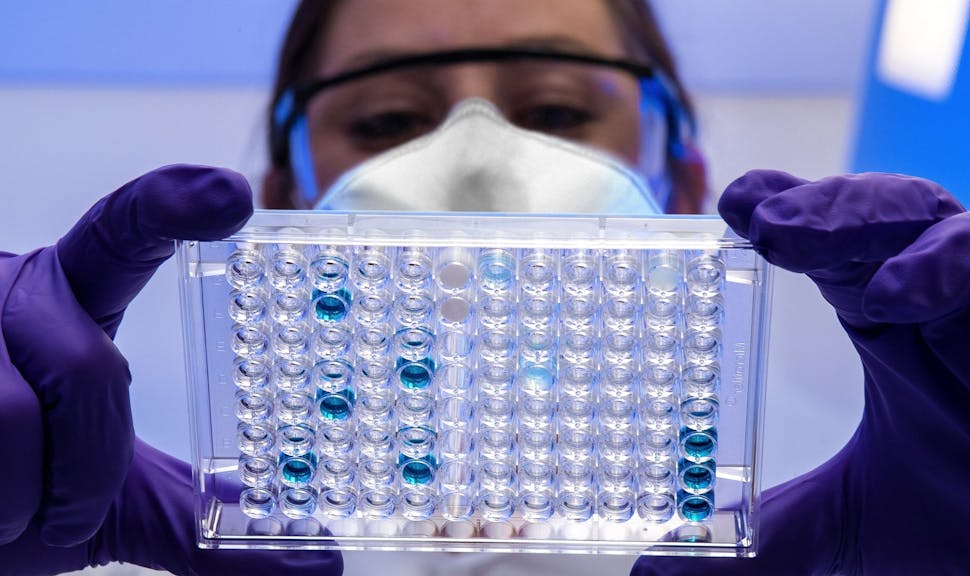

Claudio GIenalCEO, AXA UK & Ireland
July 25, 2021
Harnessing digital to enhance self-care in a post pandemic world
Claudio Gienal, CEO of AXA UK & Ireland is committed to increasing accessibility to quality and affordable healthcare and wellbeing support and is passionate about the opportunity to reclaim individual responsibility for making better healthcare choices. Here he shares insights into key trends impacting healthcare in the wake of COVID-19.
4 minutes
Since the COVID-19 crisis began, the health sector has rapidly adopted technology to deliver care – a change long on the horizon across the industry but which was accelerated through the circumstances of the pandemic. With the UK and the world-at-large still recovering from the emergency, there is an unprecedented opportunity to continue deploying technology to improve health outcomes. Especially as other factors like economic uncertainty, ageing population and rising unemployment continue to challenge the sector and health of the population.
Along with the increased use of telemedicine, AI and digital applications will continue to shape the sector as both patients and care providers grow more fluent in their usage. For example, in the UK, the use of AXA’s own Dr@Hand service, our virtual GP platform, has sky-rocketed from 500 sessions per month pre-pandemic to over 20,000 per month. Rising adoption of AI and digital diagnostic tools has helped compensate for the halting of routine disease screenings while the NHS had to shift focus to COVID-19 treatment. Our own skin cancer screening bot, for example, proved to be a highly effective diagnostic aid in helping to identify malignancies early.
The increased use of telemedicine, AI and digital applications is something we see as a lasting trend.
And digitalisation could be even further leveraged to increase access to private healthcare and reinforce health systems. In the UK today, only about 11% of the population has any private medical insurance. If we can improve access by using digital technologies to increase the affordability of health insurance, we can alleviate some of the crowding of our NHS services.
Digitalisation is therefore the biggest game-changer. It increases access to primary care through remote, flexible platforms; it reduces the cost of routine screening and monitoring – through, for example, wearables – and perhaps most importantly, it puts the individual in charge of their own health.
Digitalisation is therefore the biggest game-changer - it puts the individual in charge of their own health
As advances in medicine allow us to live longer, we now face increased risks of chronic conditions – many of which are highly preventable. By adopting healthy habits throughout our lives, we are far less likely to suffer from many of the debilitating conditions associated with old age. Our health age doesn’t have to be our actual age.
Lifestyle choices – maintaining a healthy weight, not smoking, and keeping physically active – contribute heavily to the prevention of heart disease, diabetes, many cancers, dementia and arthritis. The UK Chief Medical Officers are right when they say, If physical activity were a drug, we would refer to it as a miracle cure, due to the great many illnesses it can prevent and help treat
[1]. Education is critical – particularly with respect to young people who are at a stage in their lives when they can dramatically change their health trajectory – but we also need to improve motivation. Here digital devices can help by monitoring and prompting us.
According to a research study by Public Health England[2], one in three men and almost one in two women in the UK cannot manage to do 150 minutes of moderate physical activity per week – or just 20 minutes per day. Personal responsibility for our health is vital, and it’s not selfish to take care of yourself. Try to answer the question: If I am not healthy, how can I look after myself, my family or contribute to my place of work and community?
Personal responsibility for our health is vital, and it’s not selfish to take care of yourself
There’s encouraging evidence that wearables – for example, which monitor our activity levels, record our sleep patterns and keep track of our blood pressure – help us become more self-reliant when it comes to healthy lifestyles[3]. They increase awareness of both our physical and mental health and can nudge us toward better behaviours. This is one way that digital is putting responsibility for health back into our hands.
Physical activity also has many benefits on our mental health, and that’s something that COVID-19 has highlighted. Mental and physical health can’t be split – they are connected and together they keep us in balance. Looking after your mental health and actively de-stressing are responsibilities we owe to ourselves, as well as to those that rely on us.
Mental and physical health can’t be split – they are connected and together they keep us in balance
This extends to the older members of our families, too. Loneliness and isolation are some of the biggest factors in the mental ill-health of older people. The idea that we must reclaim responsibility for our own health, also extends to that of our families.
But beyond individual responsibility, these challenges can only be overcome through collaborations between government, companies, and individuals. For example, we’ve seen the value of public-private collaboration to develop vaccines and employers are increasingly expected to play a bigger role in the wellbeing of individuals in both centralised and decentralised systems. Employers are also much more aware of the importance of their employees’ mental health, and the benefits of disciplines like yoga or meditation are firmly established.
Companies can also work together to accelerate solutions. AXA UK too has invested in collaborations with many technology companies. In addition to Dr@Hand, we have co-developed a digital tool that allows elderly people to remain independent at home for longer. This is good news for both the individual who would much rather stay home, as well as for the healthcare system, challenged by an ageing population. We have a number of exciting joint ventures in play with technology companies, bringing innovative solutions to market. For example, AXA is collaborating with Microsoft to build a digital healthcare platform, Healthanea, which will bring global scale to our ability to digitally serve our customers’ healthcare needs.
Together, through active collaboration, we are building something that is sustainable for the long term.
[1] UK Department of Health and Social Care: UK Chief Medical Officers' Physical Activity Guidelines, 7 September 2019
[2] Public Health England: Health matters: physical activity - prevention and management of long-term conditions, 23 January 2020
[3] Gabbiadini A, Greitemeyer T. Fitness mobile apps positively affect attitudes, perceived behavioral control and physical activities. J Sports Med Phys Fitness. 2019 Mar;59(3):407-414. doi: 10.23736/S0022-4707.18.08260-9. Epub 2018 Apr 4. PMID: 29619794.
Tags:
Data in Health


